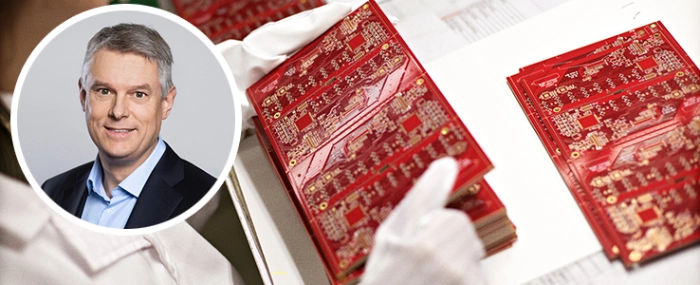
Lower sales than expected for NCAB
"All our segments noted a distinct decrease in demand, and the North America segment continues to be more affected than other segments," says NCAB Group President and CEO, Peter Kruk.
During the company's third quarter, NCAB saw its net sales decrease 14% to SEK 1 billion or EUR 86.15 million (EUR 1.16 billion or EUR 99.9 million ). Both net sales and order intake were negatively impacted by lower prices and customers’ inventory adjustments. In USD, net sales decreased 16%.
Order intake decreased by 9% to SEK 924 million or EUR 79.5 million (SEK 1.0 billion or EUR 86.15 million). Order intake levelled off and was in line with the second quarter.
EBITA decreased 4% to SEK 176.0 million or EUR 15.15 million (SEK 183.5 million or EUR 15.8 million). Operating profit was SEK 160.5 million or EUR 13.8 million (SEK 172.3 million or EUR 14.8 million).
"Despite the weak market, we are satisfied that we continued to deliver strong financial figures and cash flow. We also successfully offset the falling prices and lower prices to customers through a higher gross margin," says NCAB Group President and CEO, Peter Kruk in the report.
The company says that it has witnessed a slowdown in the global market for PCBs since mid-2022. Initially, a slowdown was noted in order intake, as the earlier exceptionally long lead times began to normalise. In a second step, the stable global supply chains enabled customers to begin reducing the extra inventory that they had accumulated during the pandemic. At the same time, the strong demand began to fall as central banks launched activities to curb inflation.
NCAB continues to explain that PCB plants in Asia have invested to increase capacity in recent years, and with decreasing order intake, utilisation levels plummeted to record lows in 2023. As a result of factories competing for available volumes, prices have fallen, having a direct negative influence on market prices and sales numbers. This has resulted in a 20% drop in global sales for the PCB industry during the first half of the year. NCAB saw a market decline as well, however, the company says that it witnessed less organic decline than the market as a whole and.
NCAB says that the long-term outlook remains positive. Drivers such as the Internet of Things (IoT) and demand for greater energy efficiency are pushing developments towards smart and connected products, which is also fueling demand for advanced PCBs. It is positive that order intake has levelled off. Seasonally, the third quarter is usually weaker than the first and second quarters due to holidays in Europe, but NCAB says that its order intake in the third quarter was at the same level as the second quarter. However, the company is not expecting a rapid rebound as demand remains at a low level.
"All our segments noted a distinct decrease in demand, and the North America segment continues to be more affected than other segments. During the third quarter, demand in the Europe segment slowed while in East the market decline is showing signs of bottoming out with opportunities for renewed growth as we move forward. We continue to have a healthy inflow of new projects and customers, which bodes well for growth in market share in the medium term," says Peter Kruk.


